
Recent Reviews by Vishal Menon
The Hollywood Reporter India

Vishal Menon is the Assoiciate Editor at The Hollywood Reporter, India. He was previously with Film Companion and The Hindu. He writes about Malayalam and Tamil Cinema.
Films reviewed on this Page
Mithya
Kadhal Enbadhu Podhu Udamai
Painkili
Vidaamuyarchi
Dominic and the Ladies' Purse
Rekhachithram
Kadhalikka Neramillai
Madha Gaja Raja
Identity
Vanangaan
Mithya

A Coming-Of-Rage Classic About Lost Innocence
Starring a wonderful Athish Shetty, filmmaker Sumanth Bhat's drama is about a boy in transit — not just physically but also emotionally.
How much does a young boy have to go through to be allowed the freedom to have an emotional breakdown? When we first meet Mithya (Athish Shetty), what we see is his back turned towards us as he travels on a train from somewhere to somewhere else. We later learn that he’s not travelling out of choice. He’s being displaced from his home in Mumbai to Udipi in Southern Karnataka where he will live with his uncle, aunt and their two daughters. Like Mithya, the film about him too has its back turned towards us. It’s not a film that grants you the solace of having empathised with its broken protagonist. Instead, it reveals these broken pieces so sparsely that we feel as lost and helpless as he does.
All 3 reviews of Mithya here
Kadhal Enbadhu Podhu Udamai
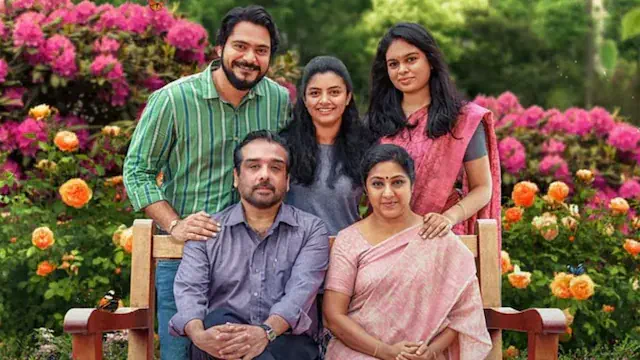
An Intense Coming-Out Drama About a Not-So-Modern Family
Jayaprakash Radhakrishnan's 'Kadhal Enbadhu Podhu Udamai' doesn’t want to preach to the choir; it instead chooses the far more complex route of speaking to people who are not looking to be convinced.
The first 30 minutes of Kadhal Enbadhu Podhu Udamai (Love Is Common Property) is not an easy film to sit through. It’s frothy and hollow and you’d be surprised that you’re watching the work of writer-director Jayaprakash Radhakrishnan, known for intense psychological dramas such as Lens (2016) and Thalaikoothal (2023). It begins with Sam (Lijomol Jose) confessing to her mother (Rohini) that she’s in love and wants her to meet this person. With the flowery set-up you’d find in silly rom-coms, we get scene after painful scene of the mother, preparing to welcome her future son-in-law. We learn that they hail from the upper middle class, and we also learn that Sam’s parents separated years ago. The film uses this time to introduce us to a handful of characters, including Sam’s father (Vineeth), Sam’s bestie Ravi (Kalesh) and Deepa (Deepa Shankar), the cook who is more than family.
All 4 reviews of Kadhal Enbadhu Podhu Udamai here
Painkili
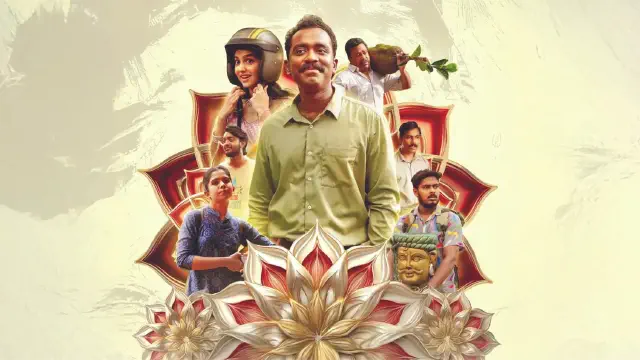
A Wildly Original, Mildly Frustrating Comedy
If you’re willing to let go of your defences, 'Painkili' becomes a mausoleum of madness, a citadel of cringe that gets you to laugh for the kind of jokes you’ve never seen or heard of before.
In Sreejith Babu’s debut Painkili, cringe isn’t the after-effect as much as it is the aesthetic the film aspires for. It is self-aware and loud and made by a director with such an original style that he hasn’t yet found ways to bring it under control. How else would you describe some of the wild ideas that are dime a dozen? Take the example of a character named Jaffer, one of the many “gundas” in the film. Not only does Jaffer introduce himself each time he runs into a friend, but he goes on to call everyone around him Jaffer too. It doesn’t make any sense and oftentimes ideas like these are so strange that we’re unsure if we’re expected to laugh or wince. But in the odd instance one of these wild swings begin to make sense, it’s next to impossible to stop laughing.
All 4 reviews of Painkili here
Vidaamuyarchi
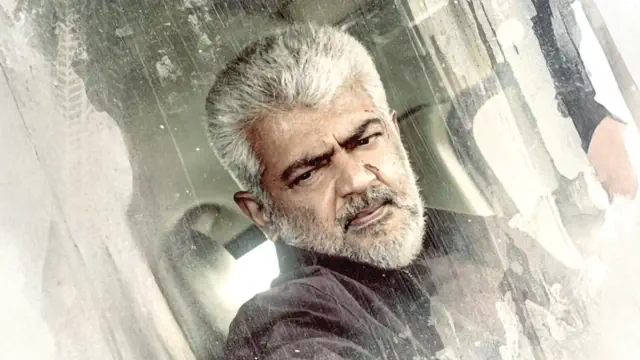
A Solid Marriage Story Stuck In A Middling Action Flick
Ajith and Trisha's 'Vidaamuyarchi' directed by Magizh Thirumeni, begins with a fascinating setup about a lost couple having to find their way back into love, but soon gets sidelined into a generic action movie
There are lovely additions Magizh Thirumeni makes to Breakdown (1997) to humanise what was otherwise a straightforward Hollywood action movie. This begins right with the way he re-interprets the title ‘Breakdown’. Not only does this mean that Magizh’s version begins way before Arjun’s (Ajith Kumar) car breaks down in the middle of nowhere as he travels with his wife to Tbilisi, but the title also alludes to the ‘breakdown’ they are experiencing in their marriage. It’s middle of the road in a sense, but the not the kind you’re thinking about. They’ve been together for 12 years and they’ve lost the magic that had once brought them together. In another awkward meet-cute that we’ve now come to expect from Magizh Thirumeni, we’re told that Arjun once sent “Happy Birthday” messages every day to Kayal (Trisha) for six consecutive months. But after 12 years, Arjun doesn’t even remember the date anymore, even when the world stays up to wish Kayal.
All 6 reviews of Vidaamuyarchi here
Dominic and the Ladies' Purse

An Epic Mammootty Character, A Not-So-Epic Investigation
Mammootty’s joyous interpretation of Dominic makes you want to forget the flaws in Gautham Menon's mystery-comedy and wait for him to be entrusted with another case soon
10 minutes into Gautham Vasudev Menon’s Dominic And The Ladies’ Purse is all it takes for one to fall in love with CI Dominic (Mammootty), the eccentric, pompous detective with a serious cash-flow issue. We meet him through Vicky (Gokul Suresh), Dominic’s new “Watson” on his first day of work, in what can best be described as a “zero introduction” scene. Dominic works out of his dilapidated home-office filled with props and furniture (his office chair is an abandoned salon seat) well past its glory days. So when he hires Vicky in a matter of seconds, it’s probably not because he’s finally found an intellectual equal, it’s just that Vicky has enough money at home to not ask for a salary.
All 6 reviews of Dominic and the Ladies' Purse here
Rekhachithram
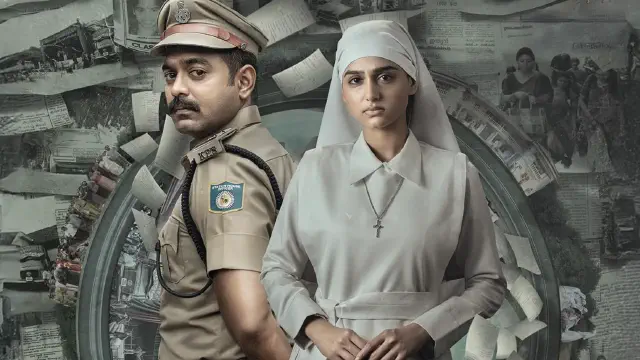
A Stunning Mix Of Crime And Cinephilia From Director Jofin T. Chacko
Right from the title font reminding one of classic ‘80s cinema (as though Bharathan himself was the calligrapher) to the way the lost art of fan mail gets integrated into this crime, the love for cinema isn’t merely a flavour in ‘Rekhachithram’ as much as it is a part of its soul
Speaking purely as a whodunit that begins with the discovery of an unidentified corpse, Rekhachithram is particularly pedestrian. The movie starts with a confession, and we cut to a person who could predictably be one of the murderers. It is not a film written for suspense or leading towards one major climactic twist. Still, nothing prepares you the way Rekhachithram takes you deep into a crime that took place so long ago — back when Mammootty hadn’t yet become the megastar he is today. This is partly because the whodunit is always in service of a spectacular amount of cinephilia. Right from the title font which reminds you of classic ‘80s cinema (as though Bharathan himself was the calligrapher) to the way the lost art of fan mail gets integrated into this crime, the love for cinema isn’t merely a flavour in Rekhachithram as much as it is a part of its soul. Even the wordplay of its title, which could be read both as “composite sketch” as well a movie about Rekha, reveals the film’s dual personalities.
All 5 reviews of Rekhachithram here
Kadhalikka Neramillai

A Charming Cultural Update Of 'O Kadhal Kanmani'
Kiruthiga Udhayanidhi gives us a delightfully messy relationship drama that never backs down from what it wants to say.
Right from the casting of the delightful Nithya Menen as Shriya, to the picture-perfect houses; from AR Rahman’s youthful score to the way these songs are shot, coded in shades of red and blue; there’s a dotingly recreated design in Kadhalikka Neramillai that is meant to evoke Mani Ratnam’s O Kadhal Kanmani (2015). Like the 2015 romance, Kiruthiga Udhayanadhi’s film also is set around two hyper-individualistic protagonists, each with their own sets of rules and quirks. If OKK was about a couple that was marriage-averse, Kadhalikka Neramillai is about two people who do not believe in commitment. But what if you add an extra layer of conflict into their midst by throwing in the idea of having children? That is what makes Kadhalikka Neramillai a cultural update of O Kadhal Kanmani, like a thought exercise that was born when someone mooted, “What if Tara and Aditya from OKK met, but later, when they are in their 30s?” It’s this bit of tweaking that makes for a more complex film. In a casual breakfast scene set at Shriya’s house, we see her correcting her mother (lovingly called Kanmani!) when she assumes Shriya to still be a virgin. This isn’t a movie about glossy love-at-first-sight moments or syrupy meet-cutes. Well into their adult lives, both Sid (Ravi Mohan) and Shriya (Nithya Menen) have been through enough heartbreaks to realise that love is… a matter of time.
All 5 reviews of Kadhalikka Neramillai here
Madha Gaja Raja
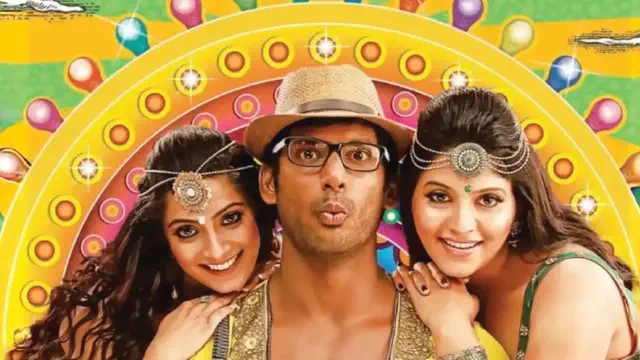
Sundar C Serves Up An Amusing Cocktail Of Silly And Sleaze
Sundar C and Vishal's long-delayed comedy gets you to laugh out loud, even when you’re trying your hardest not to.
Sundar C’s long-delayed Madha Gaja Raja is not the sort of film you enter expecting complex interpersonal relationships or technical finesse. Even if we’d watched the film in 2012 — when it was originally set to release — we may still have found its scenes dated or objectionable. It’s as though we’re forced to remind ourselves that this film is a product of its time, urging us to be kinder because none of us knew any better. Simpler times we no longer have the patience for; like that scene that follows when Raja (Vishal) learns that his friend’s wife has misplaced her gold necklace. Instead of launching an investigation, Raja offers his own gold chain and urges his friends to pool in to make up for the lost necklace. Or the other scene in which Raja deliberately loses a race, just so his rival feels respected in his hometown. Or even the over-the-top nobility with which Raja moves to Chennai to get a corporate honcho to return ₹ 52,20,350 to his broke bestie. It’s all sickeningly sweet, but you’d be shocked at how badly we want to buy into all this.
All 3 reviews of Madha Gaja Raja here
Identity

Tovino Thomas And Trisha's Overstuffed Thriller Has Identity Issues
In its excitement for having landed on a series of excellent concepts — and all the research that went in — we end up with a confused film that shares the same identity issues with its protagonists.
There is a 10-minute-long sequence in Identity, in which an important character explains a medical condition called prosopagnosia—a rare cognitive disorder where damage to a particular part of the brain affects the patient’s ability to identify faces. The scene itself is loaded with exposition, almost like a TED Talk, but it is effective in explaining the condition of the film’s most important character. As a detail, it sounds just about right to make the character appear mysterious, vague and, of course, human. But on a screenplay level, it forms a solid base to explore the unreliable narrator trope—where the only person whose observations matter, is the one who cannot be relied on at all.
All 3 reviews of Identity here
Vanangaan
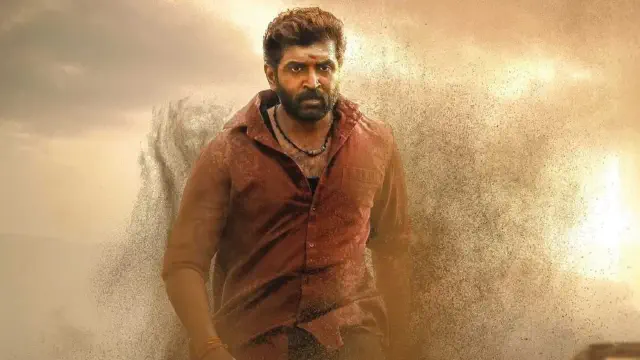
Bala Returns With An Insipid Parody Of His Own Movies
The Arun Vijay-starrer is so dated and lifeless that we watch with apathy, even when we witness a series of events that must have sounded shocking on paper.
Bala probably forgot that he is Bala. Why else would a director with an obsession for the same pet themes begin a film with a song like ‘Irai Nooru’? The song composed by GV Prakash, isn’t the issue. It’s another one of those mirthful songs about a brother and the unending love he feels for his sister. They have fun, they go to the beach, they go to temples, they go to church, and they are obviously very happy. The year is 2025 and by now, we have a 100-year history of movies telling us that something terrible is going to happen when a film begins with such a lazy, happy montage. And then we must remember that this movie is being made by Bala, a man who has built his brand around tragedies. The remaining runtime of Vanangaan, then, isn’t so much about what’s going to happen and why, as much as it is about how many people are going to die and if we will care when they do.